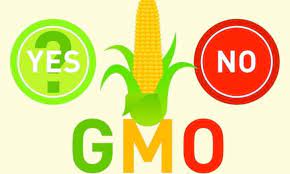Anyone with their ears pressed to the digital sounding board would’ve noticed the brouhaha that recently erupted over genetically modified organisms (GMOs). The topic, never truly gone, resurfaced with fresh heat, this time closer to home. A few Nigerian influencers stirred the pot, and the online conversation has since become a heady mix of legitimate health concerns, wild conspiracy theories, vested financial interests, and in some cases, plain old ignorance.
So, what are the facts here? Are GMOs secretly bad for your health? Is Bill Gates trying to corner the world’s food supply? Let’s break it down calmly and clearly.
What exactly are GMOs?
GMOs are organisms, usually plants or microbes, whose DNA has been altered through genetic engineering. This is typically done to introduce advantageous traits like pest resistance, drought tolerance, or higher yields. In Nigeria, some GMO crops have already been introduced. One example is the TELA maize variety, which is currently being cultivated in certain regions.
Health and GMOs
The Glyphosate Controversy
Because GMOs are man-altered life, it’s not surprising they’ve faced heavy scepticism. But there is no strong evidence currently proving that GMO foods are less safe than their non-GMO counterparts. The concern then often shifts to Glyphosate, a pesticide frequently used on GMO crops. Its name came up in headlines after studies linked it to cancers like non-Hodgkin’s lymphoma. The most infamous case is the Monsanto Roundup lawsuits, where Monsanto (a major GMO seed producer) had to pay out over $10 billion in damages due to claims linking Roundup (glyphosate-based) to cancer. So while GMOs themselves may not be proven harmful, the chemicals they’re associated with remain a significant health concern.
Bill Gates, GMOs, and a Not-So-Silent Partnership
Few people are as publicly enthusiastic about GMOs in Africa as Bill Gates. Through the Bill & Melinda Gates Foundation, he has funded countless GMO research initiatives, including Nigeria’s TELA maize rollout through the African Agricultural Technology Foundation (AATF).
But here’s where things get interesting: The Gates Foundation also owns shares in Monsanto, the company behind Roundup and many GMO seeds, a $23 million investment back in 2010. That financial connection makes some people understandably uneasy. When a billionaire funds the research, supports the rollout, and owns shares in the manufacturer, questions are naturally bound to pop up.
Patented seeds and the financial angle
Perhaps the most troubling part of the GMO conversation is economic, and it’s not hard to see why. GMO seeds are often patented. Farmers who buy them are legally prohibited from saving and replanting them after harvest. What this means in practice is that with every new planting season, farmers are forced to buy seeds again, locking them into a cycle of dependence on seed companies. That’s not just a red flag, that’s a flashing red billboard. It places farmers and, by extension, entire nations at the mercy of giant corporations. And what happens during supply chain disruptions, embargoes, or trade wars? We may be looking at food insecurity on a frightening scale.
Banditry and the GMO Mafia
Recently, some theories have surfaced linking banditry and farmer-herder clashes in Nigeria to shadowy GMO agendas. Tempting as that rabbit hole may be, there’s no real evidence supporting this claim. Farmer-herder conflicts are more likely due to land use clashes between nomadic and farming lifestyles. And banditry? More plausibly tied to unemployment, weak governance, and poverty, just like the rise in kidnapping and cybercrime. It’s important not to derail meaningful conversations with conspiracy-laden distractions.
Conclusion
GMOs are a testament to scientific progress, showing how technology can help feed a growing population. But the catch lies in who controls the seeds. If farmers can’t own what they grow, we’re no longer talking about just agriculture; we’re talking about power, control, and survival. So no, GMOs aren’t inherently evil. But we all should stay curious, stay critical, and keep asking the hard questions. Especially when billions of lives and meals are at stake.

